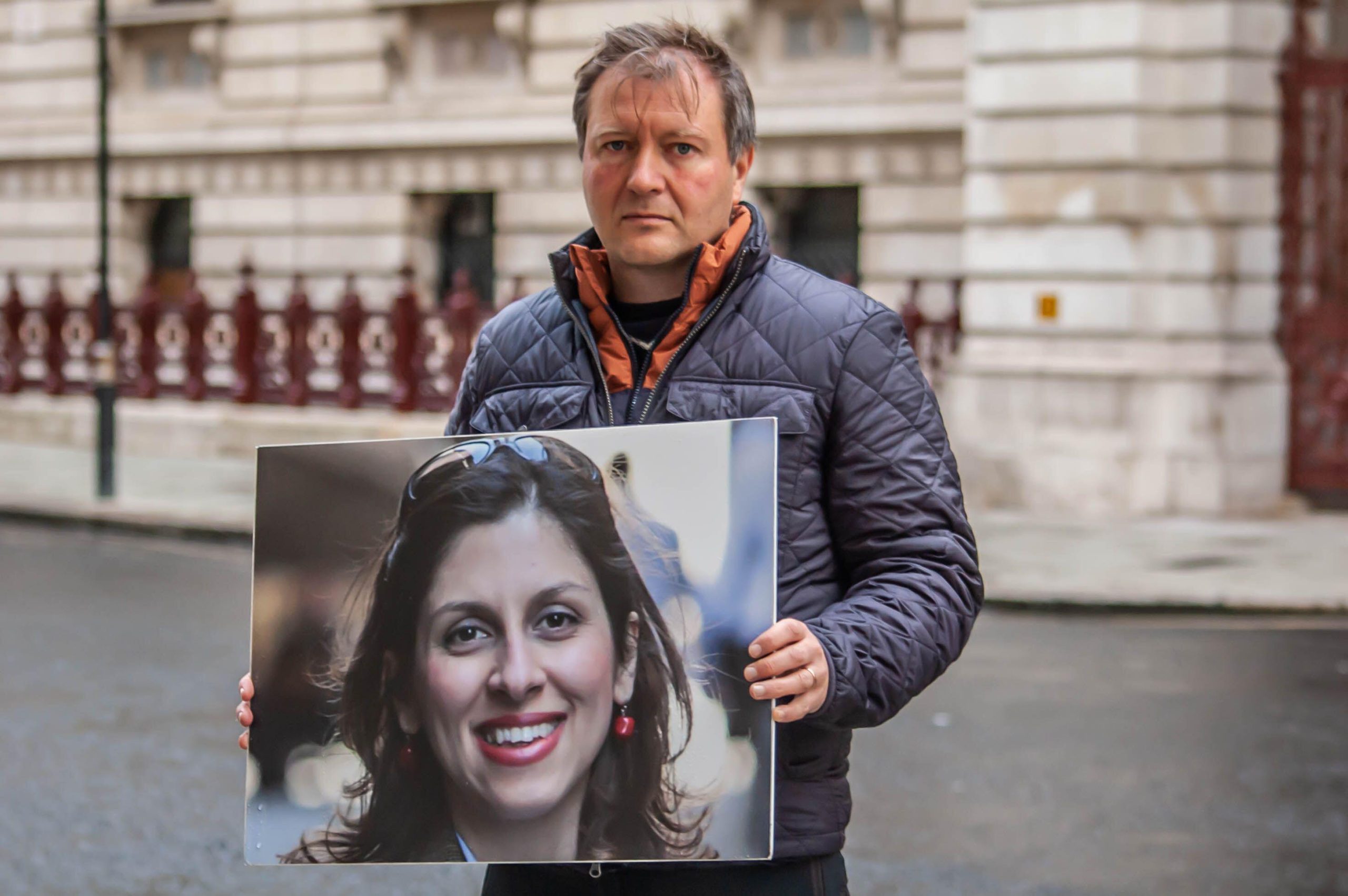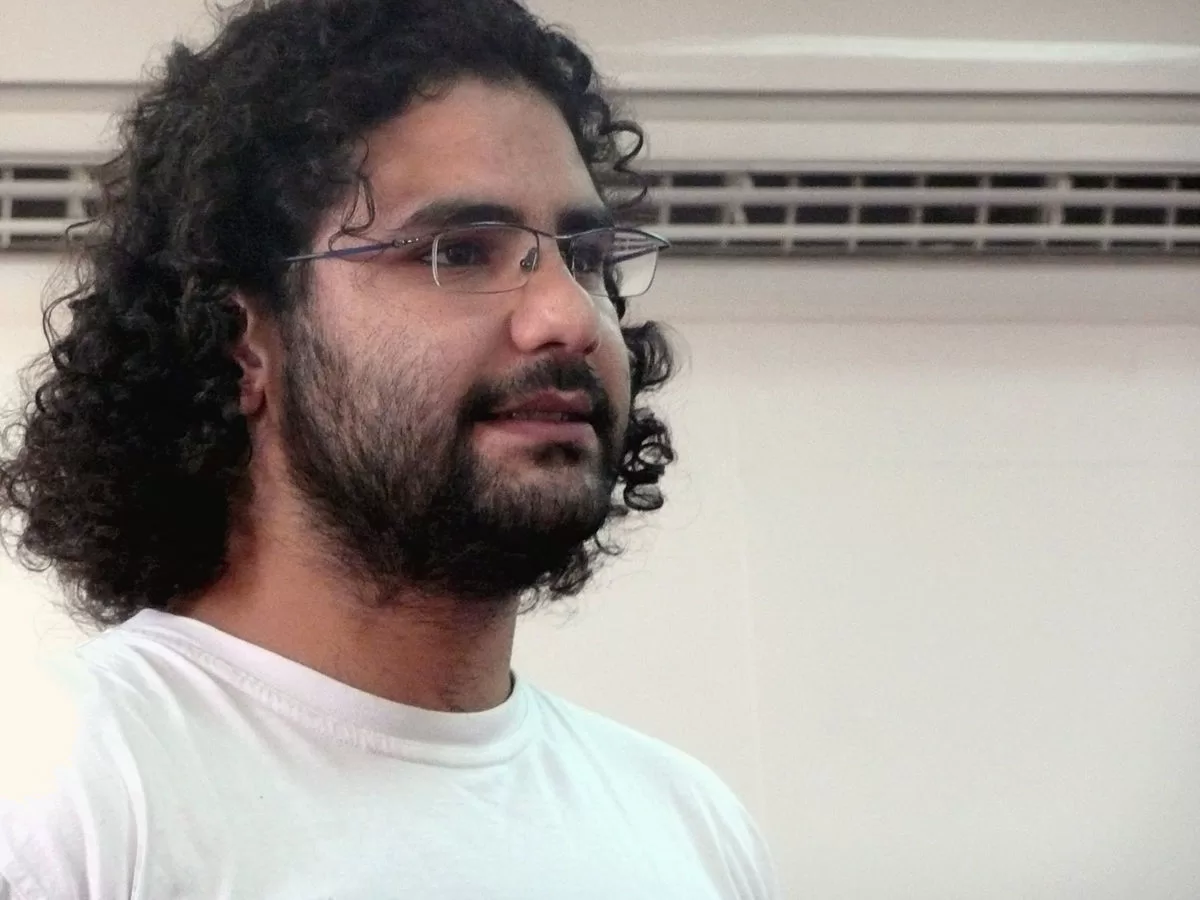Maher El Gohary is a broken and defeated man who has grown tired of life on the run. After a four-year battle to have the Egyptian state recognise his Christian faith, he is seriously contemplating reverting to Islam.
“I am seen as an outcast and have lost everything: my family, my home, my dignity and my inheritance,” he laments.

Maher El-Gohary and daughter Dina in hiding during 2010 (Photo: Compass)
For Maher and his daughter Dina, life has become “practically intolerable”. A former Muslim who converted to Christianity 30 years ago, Maher publicly announced their change of faith in 2008 when he filed a lawsuit against the Mubarak government hoping to gain the right to change the religious status on his national identification card from Islam to Christianity. He was only the second citizen to attempt to get the state to recognise his changed faith.
The change would have allowed Dina to receive a Christian religious education. But public declaration of faith-change from Islam — apostasy — is taboo in conservative Muslim-majority Egypt and Maher and Dina (who was 14 at the time) were forced to go into hiding after receiving death threats from extremists.
To this day, Maher has not won the right to officially convert. He and Dina have faced violence, humiliation and hostility for his effort. In Alexandria on Friday, Maher told Index:
We’ve been spat at, cursed and assaulted on the street many times and have been snubbed by all our relatives, neighbours and friends
In a 2009 hearing of his case, opposing lawyers urged the judge to convict him of apostasy and sentence him to death. They argued that Islam was “the highest ranking religion so followers of the faith could not convert to a lesser or inferior religion”. One lawyer claimed that cases like Maher’s were part of a Zionist conspiracy against Islam, warning that Copts (Egypt’s Christians) who protect and defend converts from Islam were doing so “at their own risk”. Maher got little support from within the Coptic community who fear retaliation. In order to get a baptismal certificate —required for official proof of conversion — Maher had to travel to Cyprus.
When I first met Maher and Dina in Abu Kir (a village on the Mediterranean Coast of Egypt) in 2010, they were living as fugitives. They’d spent the previous two years moving into a different apartment at least once a month to throw extremists and police off their trail. Then their goal was to flee the country to settle in “a more tolerant society” where they would be allowed to practise their religion freely and without fear.
Maher felt he had no choice but to seek political asylum abroad. It wasn’t an easy decision but he feared for their safety. “A man threw acid at Dina and she miraculously escaped physical harm. We also faced systemic prejudice on a daily basis and spent several days in detention after being arrested in Port Saeed,” Maher recalled.
Maher’s two brothers, who both worked for Egypt’s notorious State Security Service, also made sure he remained unemployed by threatening and intimidating anyone who hired him. In 2009, Maher and Dina attempted to leave Egypt for China, but Egyptian authorities prevented them from travelling. An hour before their scheduled departure, airport security officers confiscated their passports and notified the pair that they were “barred from travelling on orders from a higher authority”.
When Egypt’s January 2011 uprising broke out, Maher and Dina joined the protesters in Tahrir Square, hoping that the revolt would usher in greater freedoms and justice for all Egyptians.
Dina and I had long suffered state persecution for our beliefs. It was only natural that we would be among those revolting against the brutal regime.
Maher’s eyes swelled with tears as he spoke of the hope and promise the revolution had brought. Their hopes have been dashed.
Less than two weeks after Mubarak was toppled, Maher and Dina boarded a Damascus-bound plane and left Egypt. They chose to go to Syria as Egyptians require no visa to enter the country. After spending two-and-a-half years in hiding, they were finally free and wept with joy as the plane took off. “The revolution was nothing short of a miracle,” said Maher, adding, “for us in particular, it was a blessing.”
He and Dina were soon to discover that life as refugees in a foreign land was no easier than their lives as fugitives. With the help of United Nations, after two months in Syria, they were granted political asylum in Sweden. But unable to speak the language and unaccustomed to the cold, Maher and his daughter felt as alienated as they had felt in Egypt — albeit without the fear. They began to feel terribly homesick.
“Orthodox clerics we encountered were neither hospitable nor accommodating,” Maher lamented. “Their antagonism added to our feelings of estrangement.” After failing to adapt to the new environment, Maher and Dina took the bold decision to return to Egypt to face an uncertain fate.
Nearly two years after the revolution, Egypt’s Christians fear things may be worse for them in the “new Egypt” than they were under the Mubarak regime. The Islamists’ rise to power — and a new constitution currently being written by an Islamist-dominated constituent panel — has fuelled Christians’ concerns that their safety may be compromised and their freedom restricted under Islamist rule.
Under Mubarak, Egypt’s constitution ostensibly provided for freedom of belief and the practice of religious rites. But the regime placed heavy restrictions on these rights. Christians (who make up an estimated 12 to 15 per cent of the population) and members of the Bahá’í Faith (not recognised by the state ) complained of discrimination, especially in government employment. Christians were unable to build or renovate churches without a presidential decree and, according to the 2011 US State Department’s International Report on Religious Freedoms, the government arrested, detained and harassed converts to Christianity, alleging they jeopardised communal harmony.

9 October 2011. A funeral for one of the 27 Coptic protesters killed in the Maspero massacre (Demotix)
Despite promises by Islamist President Mohamed Morsi for a new “inclusive Egypt” where all citizens enjoy equal rights, Egyptian Christians or Copts have suffered a wave of sectarian violence. This has included the torching of churches and a brutal military assault on Coptic protesters at Maspero in October 2011, resulting in the deaths of 27 civilians. This year threats from Islamic extremists that have caused mass evacuations from several Egyptian villages and towns (the latest being the North Sinai border town of Rafah in September). According to a report by the Egyptian Federation of Human Rights, 93,000 Copts fled Egypt fearing for their safety in the six months after March 2011. The new draft constitution does not bode well for religious freedom and minority beliefs.
The ultra-conservative Salafis are calling for the new constitution to make the “rulings of Sharia Law” the foundation of Egypt’s legislative framework. This stricter interpretation of Sharia Law will further alienate Egypt’s minority Christians, who have long suffered marginalisation and exclusion. Furthermore, the new draft only recognises “the three Abrahamic faiths”. Adherents to non-Abrahamic faiths, such as the estimated 2,000 followers of the Bahai’i faith, are not mentioned and therefore may be denied the right to practise or build places of worship. Moreover, anti-blasphemy laws stipulated in articles 38 and 40 of the draft prohibit “the defamation of messengers and prophets”, failing to specifically define what is meant by “defamation”.
This is the Egypt that Maher and Dina have returned to after spending nearly two years as refugees outside their country.
Traumatised and confused by the experiences of the last four years, father and daughter say they are resigning themselves to what may come. They realise that the tide of conservatism sweeping Egypt may result in an even more antagonistic environment for Christians, particularly for converts from Islam. Dina has already reconverted to Islam and Maher has lost his fighting spirit.
“I’m utterly exhausted and drained,” Maher said, his voice choked with emotion. “I have no more energy to fight.”
Shahira Amin is an Egyptian journalist and broadcaster
Read Egypt’s Bloody Sunday Yasmine El-Rashidi’s account of the brutal murder of Coptic Christians




